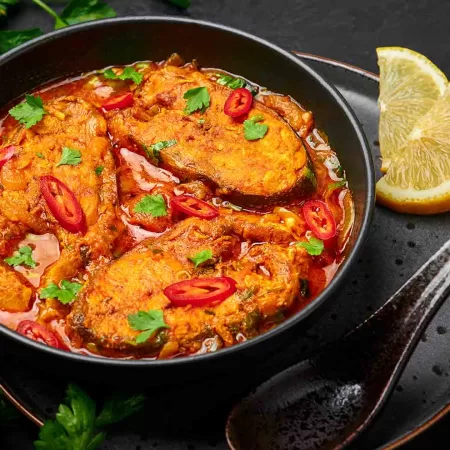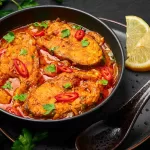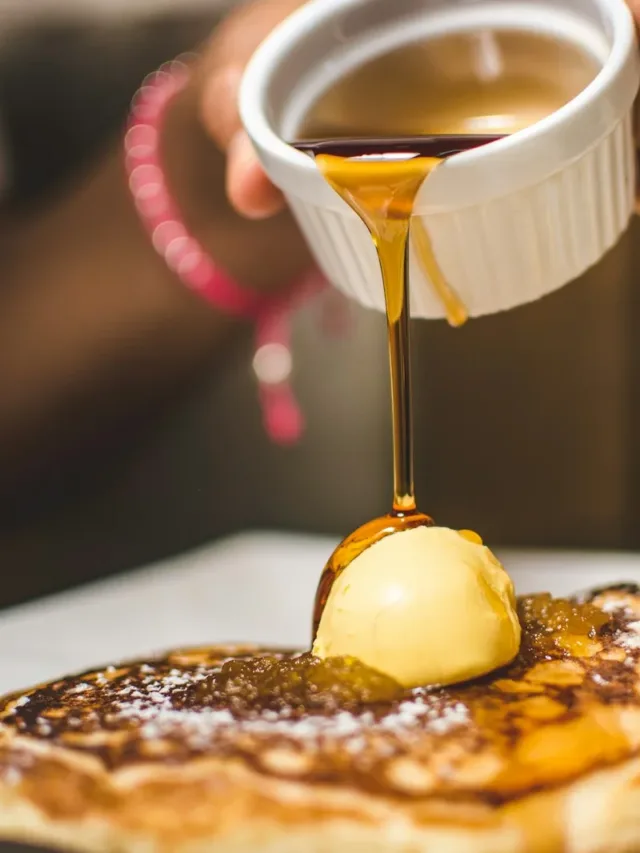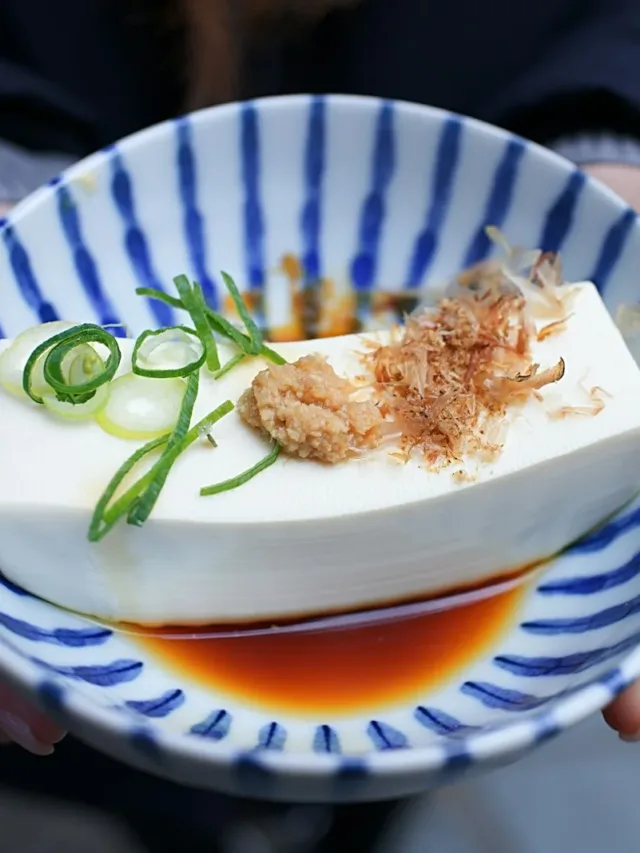Is Assamese Fish Curry (Masor Jhol) full of Nutrition?
Assamese Masor Jhol is a traditional fish curry dish from the Assamese cuisine of northeastern India. It is made with firm-fleshed fish such as rohu or catla, along with tomatoes, onions, green chilies, and a blend of spices including cumin, coriander, turmeric, and red chili powder. Masor Jhol is known for its light and flavorful taste, and is a staple dish in Assamese households. It is an easy-to-make dish that is both nutritious and delicious, providing a good source of protein, vitamins, and minerals.

Assamese Fish Curry (Machher Jhol)
Equipment
- 1 Heavy Bottomed Pan
Ingredients
- 500 gm Fish Use a firm-fleshed fish like rohu or catla
- 2 pcs medium sized tomatoes Chopped
- 1 pc large onion chopped
- 2 pcs Green Chilli Slit
- 1 tsp Ginger Paste
- 1 tsp Garlic Paste
- 1 tsp Cumin Powder
- 1 tsp Coriander powder
- 1 tsp Red Chilli Powder can substitute with Bhoot Jholakia in small quantity
- 1 tsp Turmeric Powder
- 2 tbsp Mustard Oil preferably Kachhi Ghani
- 1 Salt to taste
- 1 bunch Freshly chopped Coriander
Instructions
- Clean and cut the fish into desired-sized pieces and set aside.
- Heat mustard oil in a heavy-bottomed pan over medium heat.
- Add chopped onions, green chilies, and a pinch of salt. Cook until the onions turn golden brown.
- Add ginger and garlic paste and cook for another minute.
- Add chopped tomatoes and cook until they are soft and mushy.
- Add cumin powder, coriander powder, turmeric powder, red chili powder, and salt to the pan. Stir well.
- Add about 1 cup of water to the pan and let the spices cook for about 5 minutes.
- Carefully add the fish pieces to the pan, cover and cook for about 8-10 minutes, or until the fish is fully cooked.
- Once done, turn off the heat and sprinkle chopped coriander leaves on top.
- Serve hot with steamed rice.
Notes
Nutritional Information of Assamese Fish Curry (Machher Jhol)
Here is a rough estimate of the nutrition content in a serving of Assamese Fish Curry – Masor Jhol (based on a serving size of 150g):
- Calories: 150-200 calories
- Protein: 20-25g
- Fat: 10-12g
- Carbohydrates: 10-12g
- Fiber: 2-3g
- Sugar: 2-3g
- Sodium: 400-450mg
Vitamins:
- Vitamin B12: Approximately 2.0 micrograms (mcg) or 80% of the recommended daily value (DV)
- Vitamin D: Approximately 2.0 International Units (IU) or 0.5 micrograms or 5% of the DV
- Niacin (Vitamin B3): Approximately 4 milligrams (mg) or 20% of the DV
- Riboflavin (Vitamin B2): Approximately 0.2 mg or 12% of the DV
Minerals:
- Iron: Approximately 1.0 mg or 6% of the DV
- Phosphorus: Approximately 150 mg or 15% of the DV
- Zinc: Approximately 0.9 mg or 8% of the DV
- Selenium: Approximately 20.0 micrograms (mcg) or 36% of the DV
Please note that the exact values may vary based on the ingredients used and their proportions, cooking methods, and serving size. This information should be used as a general guideline only and not as a substitute for professional medical advice.
Health Benefits of Assamese Masor Jhol
Assamese Fish Curry is loaded with lots vitamins and minerals in addition to decent value of protein making it a healthy meal to be added to your diet. Here is a list of some of the vitamins and minerals present in a serving of Assamese Masor Jhol along with their benefits:
Vitamins:
- Vitamin B12: supports nerve function, brain health, and helps make DNA
- Vitamin D: important for bone health and helps the body absorb calcium
- Niacin (Vitamin B3): helps the body convert food into energy
- Riboflavin (Vitamin B2): helps the body convert food into energy
Minerals:
- Iron: helps the body produce red blood cells
- Phosphorus: helps build and repair bones and teeth
- Zinc: supports the immune system and helps wounds heal
- Selenium: helps protect cells from damage and supports the thyroid gland







